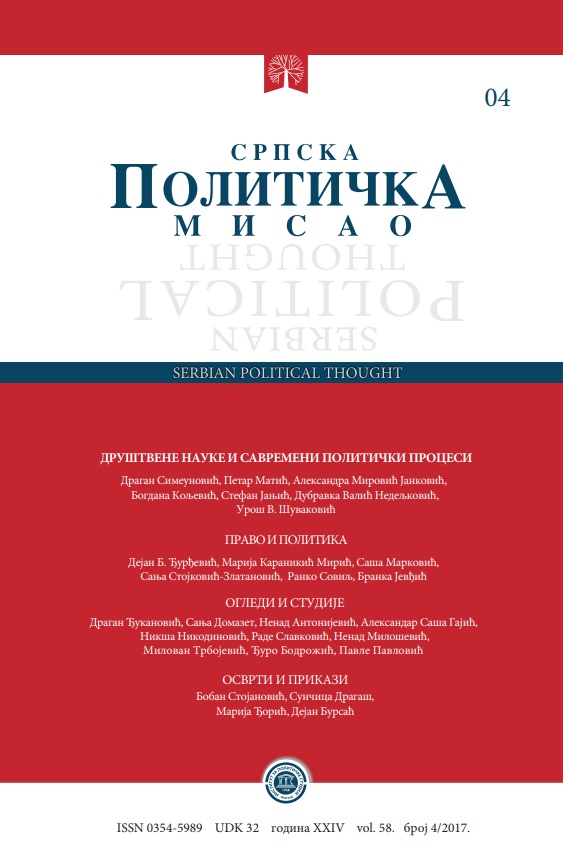ЕУ и Русија: између нормативности и реал-политике
EU and Russia: between Normativity and Real-Politics
Author(s): Aleksandar Saša GajićSubject(s): International relations/trade, Geopolitics
Published by: Институт за политичке студије
Keywords: EU; Russia; normativism; real politics; multi-polarity; geopolitics; eastern EU enlargement
Summary/Abstract: By observing normative framework that is not only affecting self determination and perception of the “Other” in international politics, but which is also significantly contributing to the perception of one`s own major and minor interests, the Paper focuses on the contemporary relations between the EU and Russia. In recent years there were numerous disputes between EU and Russia such as Georgian War, Russia-Ukraine “gass disputes”, question of Kaliningrad, cross-border control disputes, NATO`s eastern enlargement and construction of anti ballistic missile shield in new NATO member states, Ukraine’s Civil War... The antagonism between EU and Russia concerns not only their political disputes, but also has its repercussions on theoretical point of view that is being developed on both sides. The EU sees itself as an exclusive “postmodern power” with superior normative content that looks at Russia as a supporter of an outdated real-political approach that seeks to restore its empire. On the other hand, Russia defines itself as a state that adheres to the Westphalian, sovereign concept of power in international relations based on its cultural and historical heritage which obliges it to act in real-political dimensions. From this perspective, Russia sees the “normative force” of the EU as an expression of its false superiority behind which geopolitical interests of the new “Drive toward East” are being hypocritically hidden. In the contemporary international relations that are evolving toward multi-polarity, EU is the weakest center of regional power and the supranational construction with most problematic perspectives, while Russia tends to become partially renewed “Great Power”. While Russia acts as independent pole of political power, EU is still in a subordinate, non-independent position towards the USA and NATO. The paper further analyzes in detail the normative foreign policy of the EU as well as the normative and interest disagreement between the EU and Russia, as well as Russian foreign policy that tries to set ground for multi-polar world of sovereign states with Russia as its “central balancer”. The concluding part of the Paper explains that each of these two entities follows the self-defining logic and its value framework that is, however, not just a opposing or rival reaction toward the other international power, but a logical continuation of one’s own internal politics and their prevailing cultural-collective reasoning, and only a secondary reaction to the challenges addressed by their rivals.
Journal: Српска политичка мисао
- Issue Year: 2017
- Issue No: 4
- Page Range: 261-277
- Page Count: 17
- Language: Serbian

